Introduction
In the challenging journey of addiction recovery, setting clear and achievable goals becomes a beacon of hope and guidance. Goal-setting not only directs individuals towards sobriety but also empowers them to reclaim personal agency and self-efficacy. This article explores the multidimensional role of goal-setting in recovery, illustrating how structured objectives can markedly improve outcomes and enhance the quality of life in various aspects.
The Role of Goal Setting in Recovery
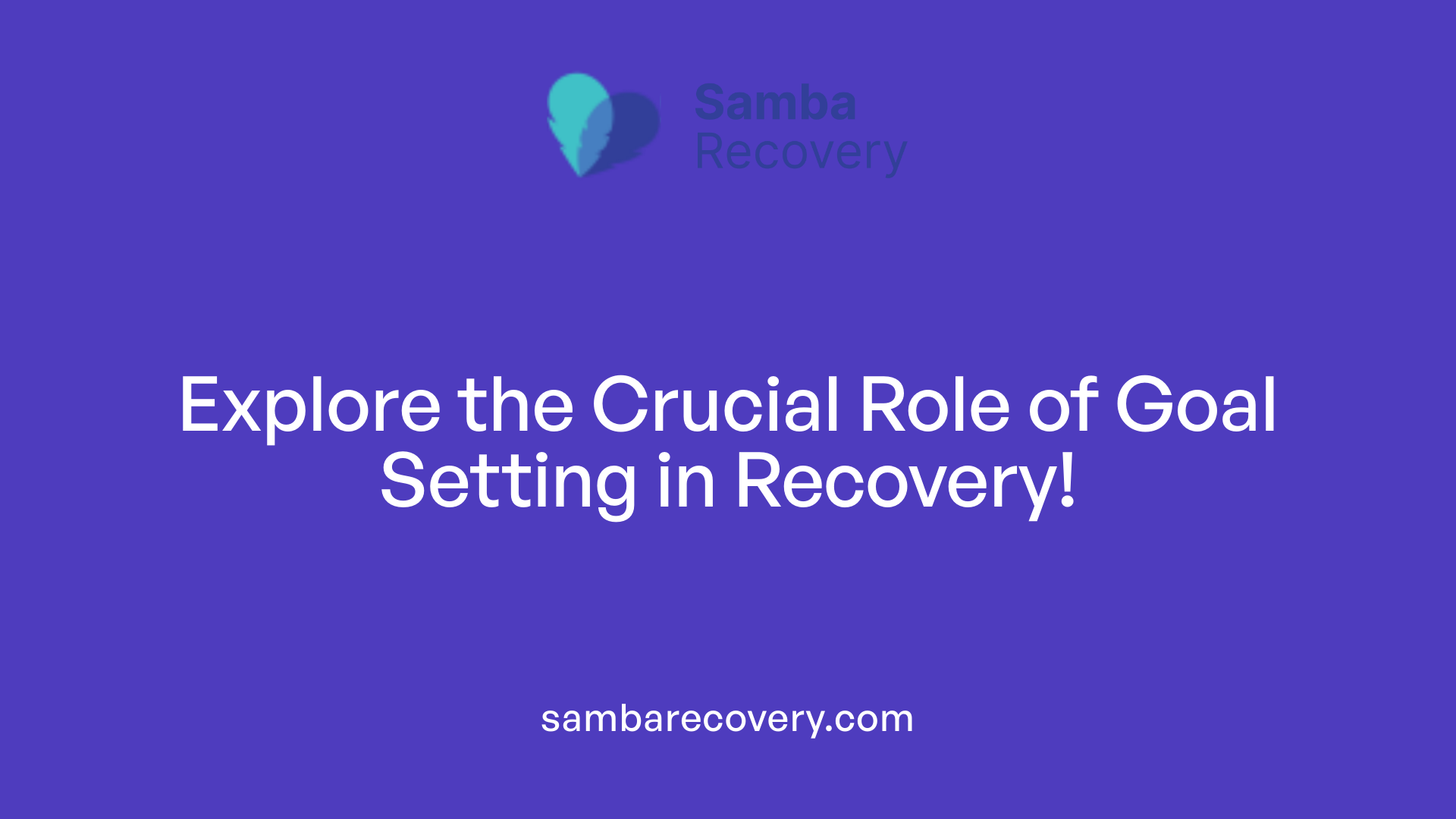
Importance of Goal Setting in Recovery
Goal setting plays a crucial role in the recovery process from addiction by providing individuals with direction and purpose. By clearly defining what they aspire to achieve, individuals can enhance their focus and motivation on the journey towards sobriety. Adopting the SMART framework—Specific, Measurable, Achievable, Relevant, and Time-bound—empowers individuals to create realistic goals. This method not only clarifies objectives but also significantly increases the chances of successful outcome tracking.
Benefits of Focusing on Present and Future Goals
Setting goals encourages individuals to concentrate on the present and future, steering their attention away from past obstacles. This shift in focus is crucial in maintaining a positive mindset and fostering resilience during the recovery journey. Goals can provide a sense of purpose and meaning, preventing feelings of boredom that could lead to setbacks or relapse. By achieving smaller, manageable goals, individuals can celebrate incremental progress, which is vital to sustaining motivation and engagement in recovery.
Impact on Self-Esteem and Personal Relationships
Achieving goals significantly boosts self-esteem, which is often compromised due to substance use. Goals tailored to individual needs—such as improving personal relationships, securing employment, or enhancing financial stability—foster both personal growth and confidence. Positive reinforcement from accomplishing these goals can establish a sense of personal agency and autonomy, allowing individuals to reclaim control over their lives. Moreover, involving supportive peers in this process enhances accountability, contributing to a robust support network essential for sustained recovery.
Effective Techniques for Goal Setting
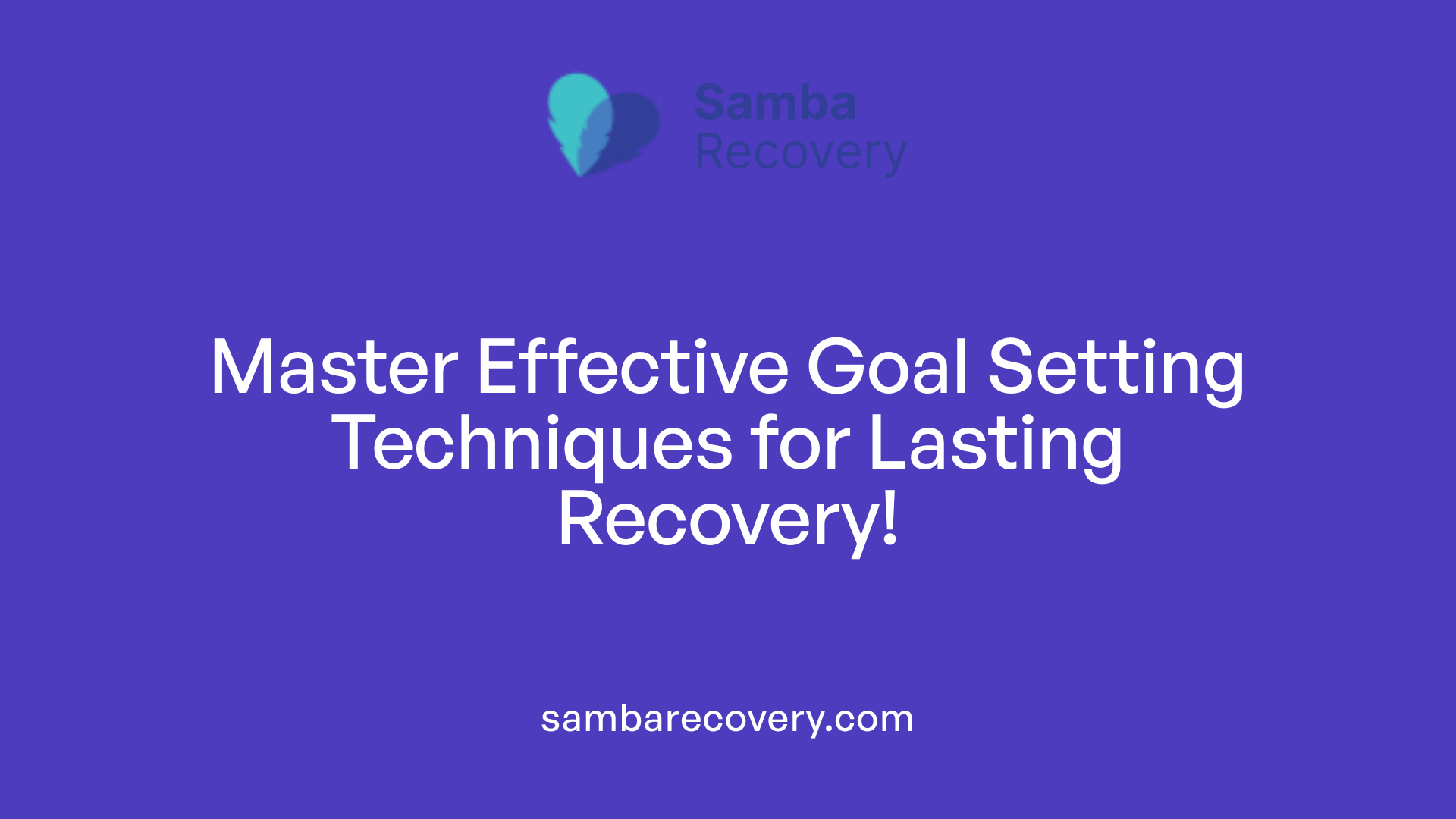
What are some effective techniques for setting and achieving goals during addiction recovery?
Setting goals during addiction recovery is instrumental for fostering motivation and guiding individuals towards recovery. To maximize effectiveness, the SMART criteria is a highly recommended approach:
- Specific: Clearly define what you want to accomplish. Instead of a vague goal like "get fit," specify it as "exercise for 30 minutes, five days a week."
- Measurable: Establish criteria to measure progress. For example, tracking the number of sober days or the amount of weight lost can provide tangible milestones.
- Achievable: Ensure goals are realistic and attainable. Setting a goal to attend daily meetings might be overwhelming; instead, aim for a few sessions per week to start.
- Relevant: Align goals with personal values and longer-term aspirations. Engaging in activities that resonate with one’s recovery journey encourages commitment.
- Time-bound: Set deadlines to create urgency and encourage consistent progress. For instance, aim to reach a particular goal within three months.
Personalized and realistic goals
Personalization of goals based on individual desires and circumstances is crucial. Reflecting on personal priorities can help define what areas—such as financial stability, personal relationships, or job skills—need attention. This tailored approach not only enhances motivation but makes the recovery journey feel relevant and meaningful. Starting with smaller short-term goals can help avoid feelings of being overwhelmed, gradually building confidence as each goal is accomplished.
Tracking progress and accountability
Writing down goals and sharing them with a support network enhances personal accountability. Regular check-ins with supportive individuals help maintain focus and provide encouragement in tough times. Employing progress logs or journals can assist in tracking achievements and adjusting goals as necessary. Flexibility in goal adjustment ensures that they continue to resonate and serve the evolving needs during recovery.
In summary, using the SMART criteria alongside a personalized approach while maintaining accountability significantly boosts the odds of success in the recovery journey.
Psychological Benefits of Goal Setting in Recovery
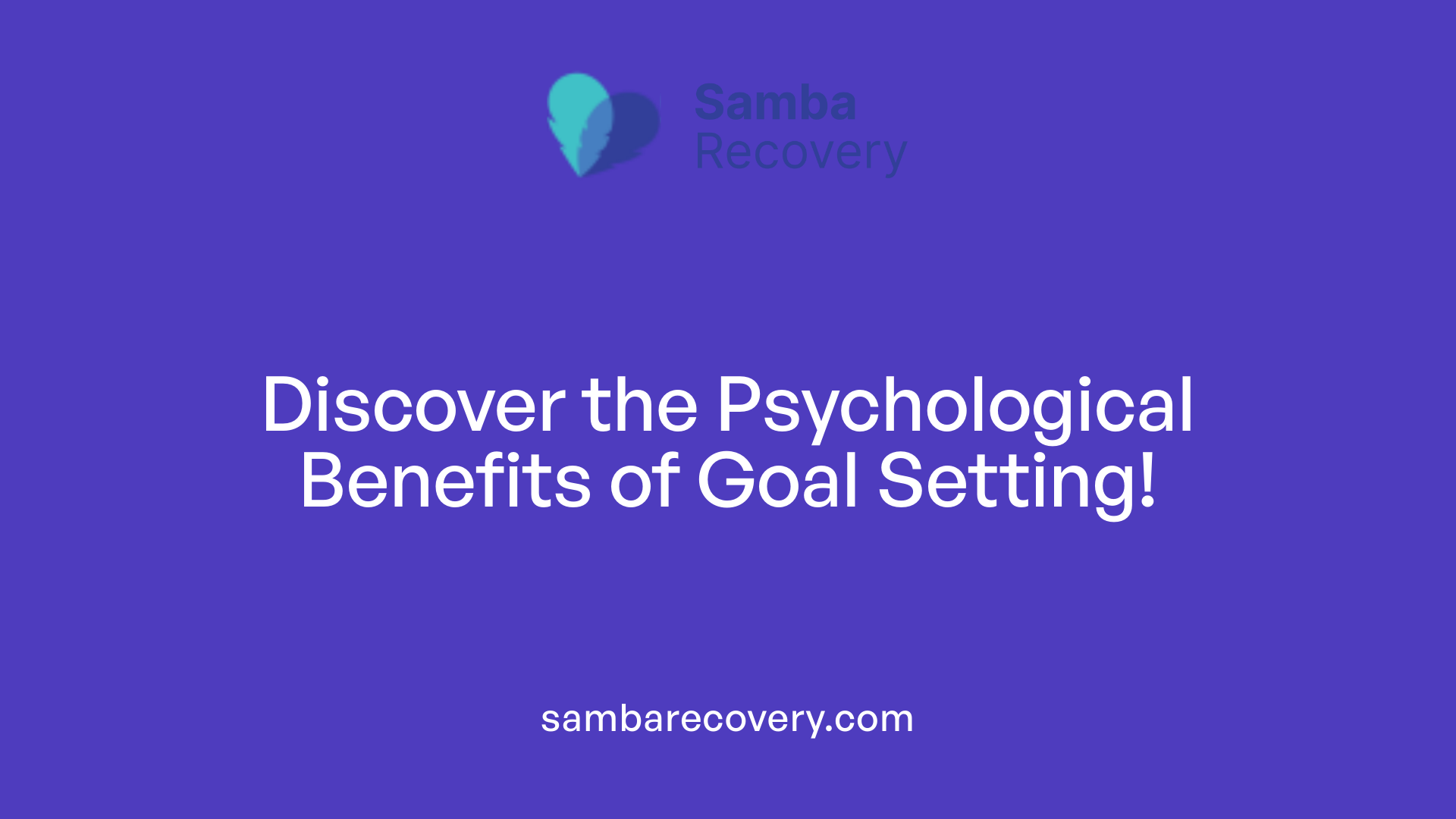
What are the psychological benefits of setting realistic and achievable goals in addiction recovery?
Setting realistic and achievable goals in addiction recovery offers numerous psychological benefits. One of the primary advantages is the enhancement of self-esteem. As individuals accomplish their goals, they experience a sense of pride and success, which is crucial for maintaining motivation and combating the low self-worth often associated with addiction.
A future-focused outlook is fostered through goal setting. When individuals establish clear objectives, they shift their attention from past mistakes and regrets toward positive aspirations. This helps to create a hopeful mindset, which is vital for recovery. By envisioning their desired future and working toward it, people can alleviate feelings of shame and self-doubt.
The SMART goal framework—Specific, Measurable, Achievable, Relevant, and Time-bound—greatly impacts motivation and success rates. By utilizing this structured methodology, individuals can set clear and manageable goals, increasing their likelihood of achievement. This framework not only aids in tracking progress but also encourages regular reflection and adjustments, keeping individuals engaged and motivated.
Finally, celebrating small victories is essential for reinforcing commitment. These small achievements build a robust support network and create a sense of community, both important elements in sustaining long-term recovery.
Strategies for Maintaining Focus in Recovery
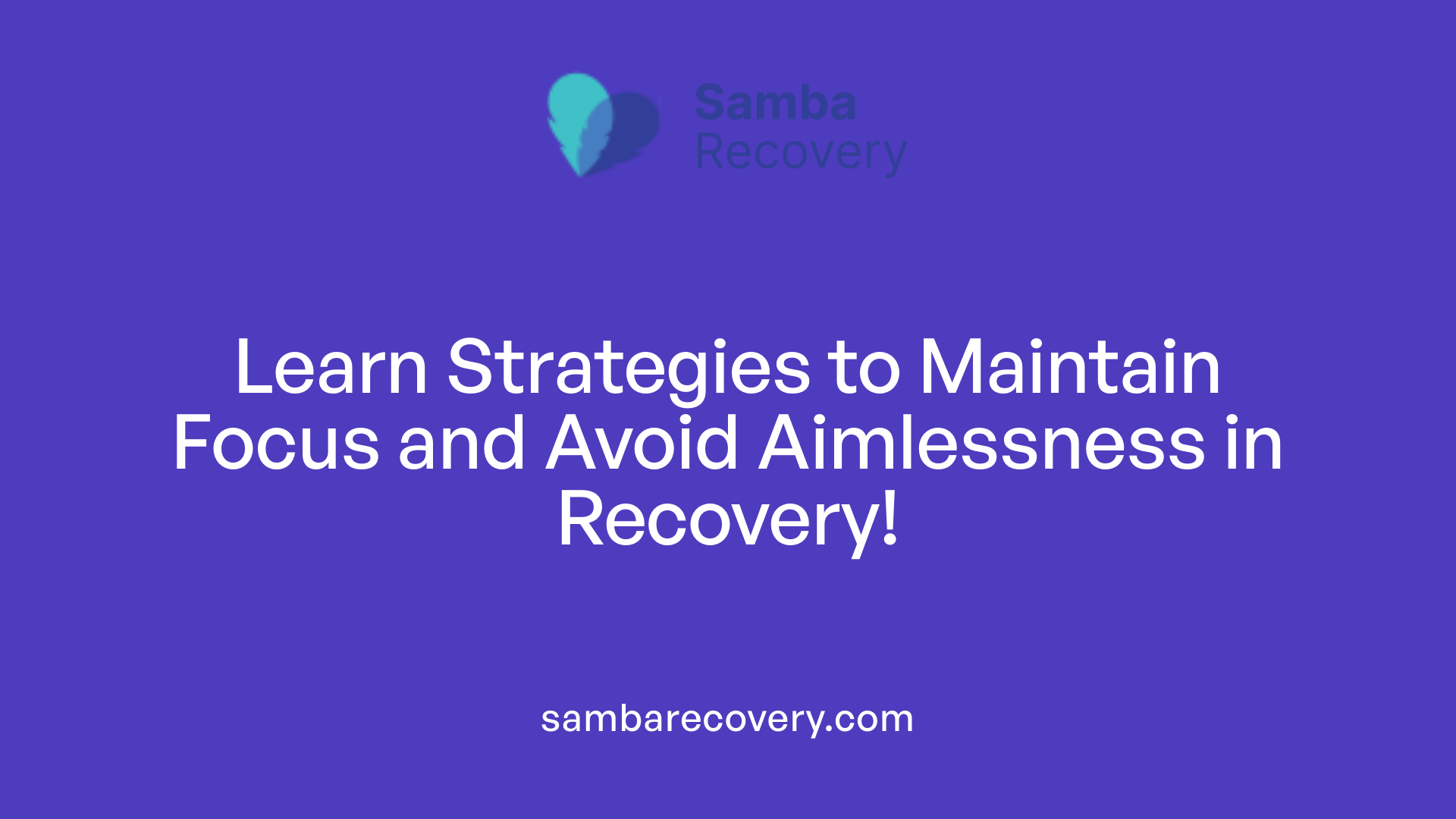
How can individuals maintain focus and avoid aimlessness during recovery?
Maintaining focus and avoiding aimlessness during recovery is crucial. Individuals can achieve this by setting clear and structured goals using the SMART criteria—Specific, Measurable, Achievable, Relevant, and Time-bound. This framework not only helps define objectives but also assists in tracking progress regularly.
Fostering self-belief plays a vital role as well. Engaging in self-care routines, including regular exercise, balanced nutrition, and adequate rest, fortifies commitment to the recovery process. Mindfulness practices, such as journaling and focusing on living one day at a time, can alleviate anxiety, allowing individuals to stay present and focused.
Importance of support networks
Establishing a robust support network is essential. Connections with family, friends, or support groups offer encouragement and accountability. These supportive environments allow individuals to share experiences, celebrate small victories, and lean on others during challenging times, reinforcing motivation to remain committed to their recovery journey.
Balancing self-care with goal achievement
Balancing self-care with the pursuit of goals is another critical strategy. It’s important to recognize triggers and apply cognitive-behavioral techniques to navigate challenges effectively. By ensuring that self-care doesn’t take a backseat to goal achievement, individuals can maintain resilience and focus, contributing to a sustainable recovery journey.
The Importance of Customized Goal Setting
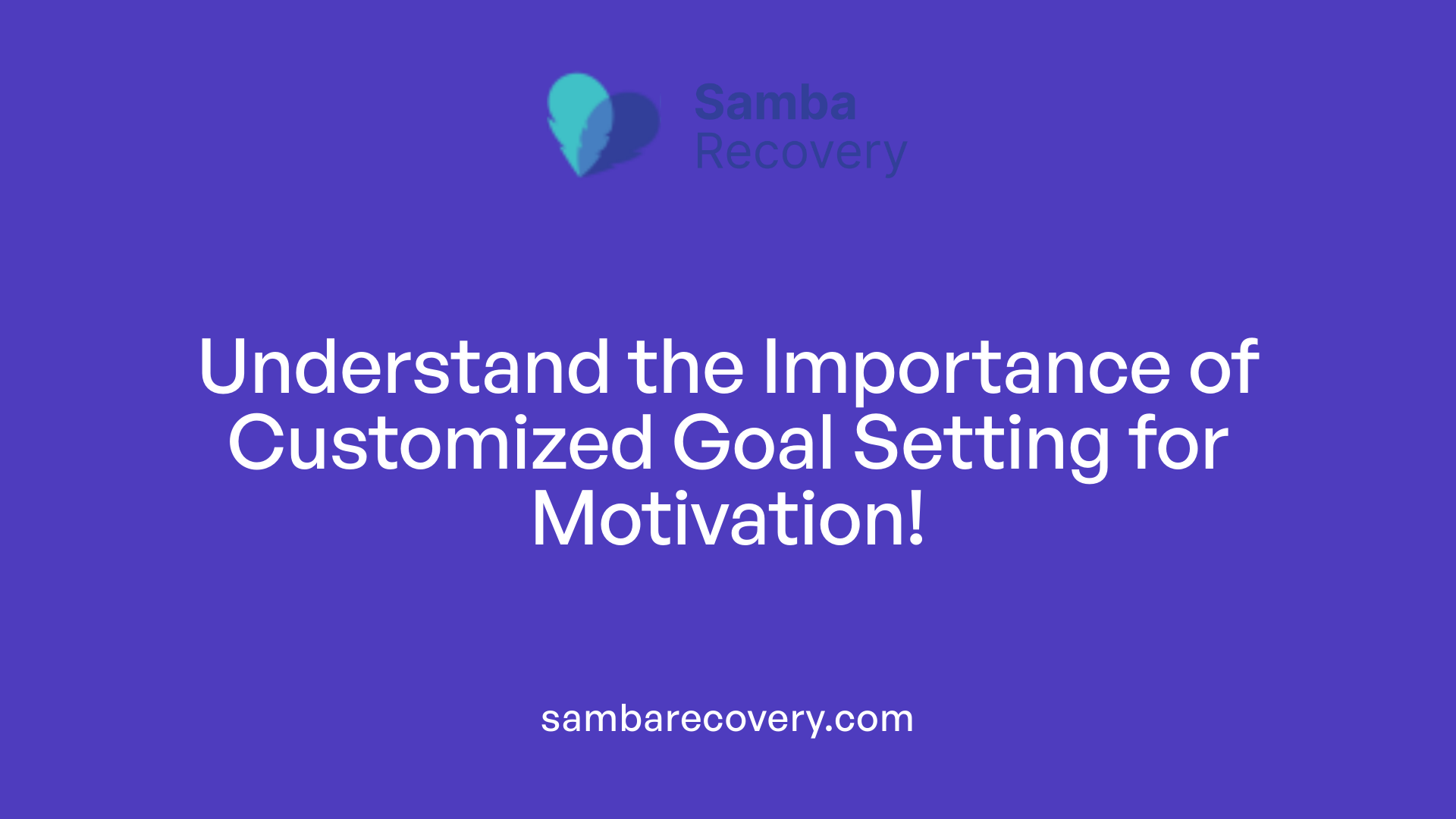
Why is customized goal setting important for motivation and personal agency in recovery?
Customized goal setting is essential because it directly connects with an individual’s unique values and circumstances, making the recovery process not only more relevant but also engaging. By tailoring goals to reflect personal desires, individuals can establish specific, measurable, achievable, relevant, and time-bound (SMART) objectives. This structure enhances accountability and clarity, while efforts to meet them feel less overwhelming.
Short-term goals play a critical role in maintaining motivation. When individuals set smaller, manageable targets, they can celebrate incremental achievements, which boosts their confidence along the way. This sense of progress is important, especially in early recovery where the journey may seem daunting.
Moreover, goal setting fosters personal agency. It empowers individuals to take ownership of their recovery journey, encouraging them to actively participate in making decisions about their health and wellness. By defining their own goals, individuals can create a structured roadmap that supports sustainable, positive outcomes and a fulfilling life beyond addiction.
Conclusion
In conclusion, setting goals in addiction recovery is more than just a strategic tool; it is a means of empowerment and transformation. Through structured goal-setting, individuals can navigate their recovery journey with a clearer sense of direction and purpose. Personalized approaches to goal-setting encourage personal agency, fortifying self-esteem, and paving the way for lasting sobriety and well-being. As individuals set and achieve their goals, they build confidence and resilience, essential allies against relapse and toward realizing their full potential.
References
- Goal Setting in Addiction Recovery
- How to Set Realistic and Achievable Goals for Recovery
- Psychology of Effective Goal Setting in Addiction Recovery
- The Importance Of Goal Setting In The Recovery Process –
- Setting SMART Goals in Recovery
- Setting Goals for Recovery
- Why Goal-Setting Is So Important in Recovery
- Goal Setting in Addiction Recovery






